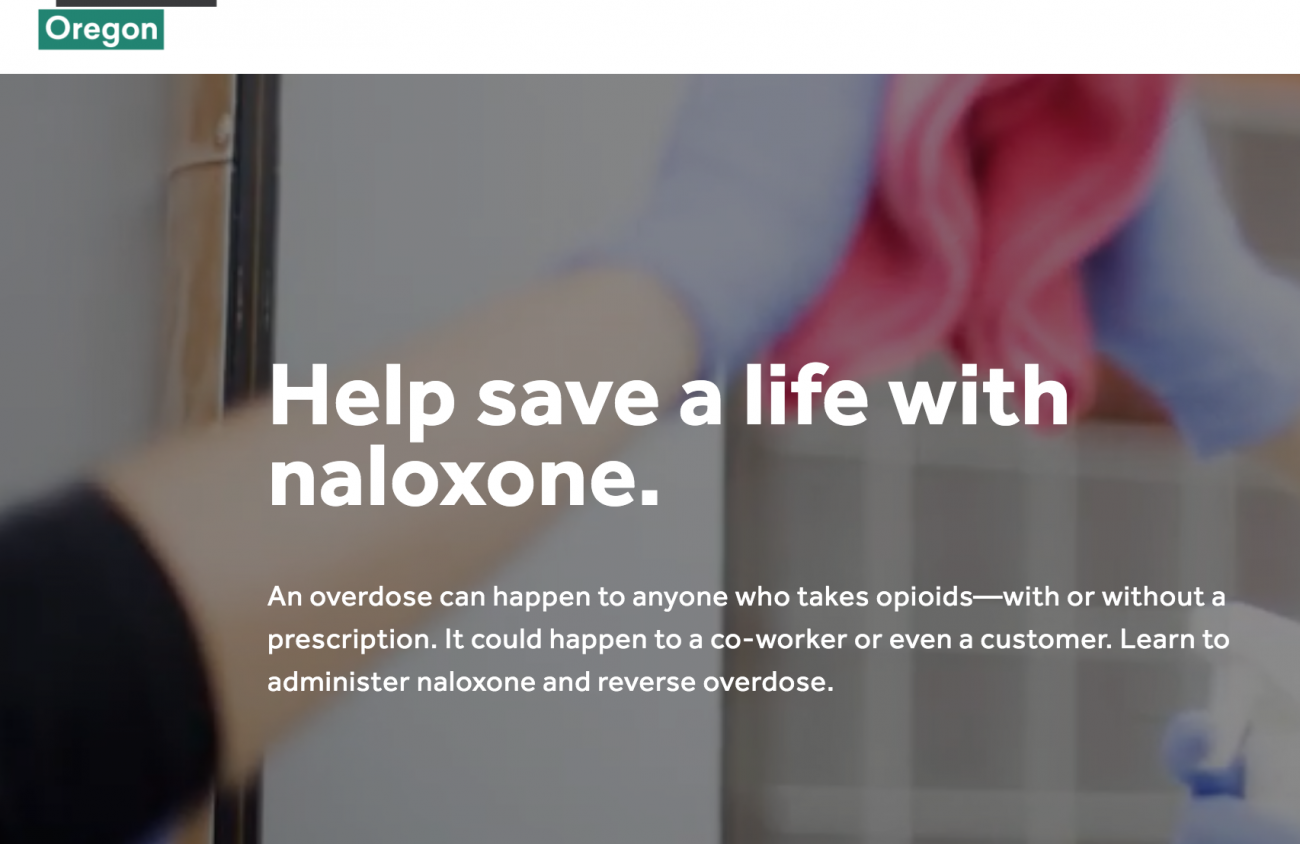At a Nov. 18 press conference , the Oregon Health Authority announced a campaign that aims to provide employers with the tools needed to train staff on how to reverse an opioid overdose, in the event one happens while on the job.
“We know that many opioid overdoses happen in public spaces and at workplaces, and employers have a powerful role to play in helping save lives and turn the tide of this epidemic,” says Dr. Dana Hargunani, OHA chief medical director.
The program, called “Reverse Overdose Oregon,” will provide employers with kits to enable the use of Naloxone, a medication used by paramedics to rapidly reverse an opioid overdose. There will offer be formal trainings on to administer the Naloxone, which usually comes as a nasal spray.
“Most workplaces are already equipped with fire extinguishers and AEDs. We hope this pilot project will inspire more employers to build life-saving Naloxone into the way they prepare for emergencies and create safe spaces for employees and customers alike,” Hargunani says. “Together, we can tackle this critical challenge in our communities.”
As part of the campaign, OHA will send 8,000 Naloxone cases to businesses across Oregon. The case will include gloves, a rescue breathing mask, antiseptic wipes and an instruction card for naloxone administration. OHA is also providing cases to the nine federally recognized Native American tribes in Oregon, as well as county health departments who have opted to be part of the campaign.
Mike Westling from OHA says, “OHA has been talking to first responders and public health officials in Lane County about the campaign. “
He adds that public health officials will be identifying the employers — both public and private — in their communities “that are best positioned to respond to overdoses.”
A 2019 survey from the National Safety Council says that 75 percent of U.S. employers have been directly affected by opiate use, yet only 17 percent feel well prepared to handle an overdose. 30 percent have experienced an overdose, an arrest, a near-miss or an injury related to employee opiate use.
Since early 2018, Eugene Police Department officers have been encouraged, though not required, to carry nasal Narcan with them while on duty. EPD holds optional training that teaches officers how to administer the Narcan as well. Officers with the University of Oregon Police Department also carry two doses of Narcan at all times, according to UOPD.
Jason Hayward, a bartender for Lucky’s Club in downtown Eugene, says that while he’s never officially seen an overdose at work, he has noticed an increase in opiate use over the past year.
“We monitor the bathrooms pretty well, Hayward said. “But I’m all for having those kinds of tools and training in the workplace. It couldn’t hurt.”
